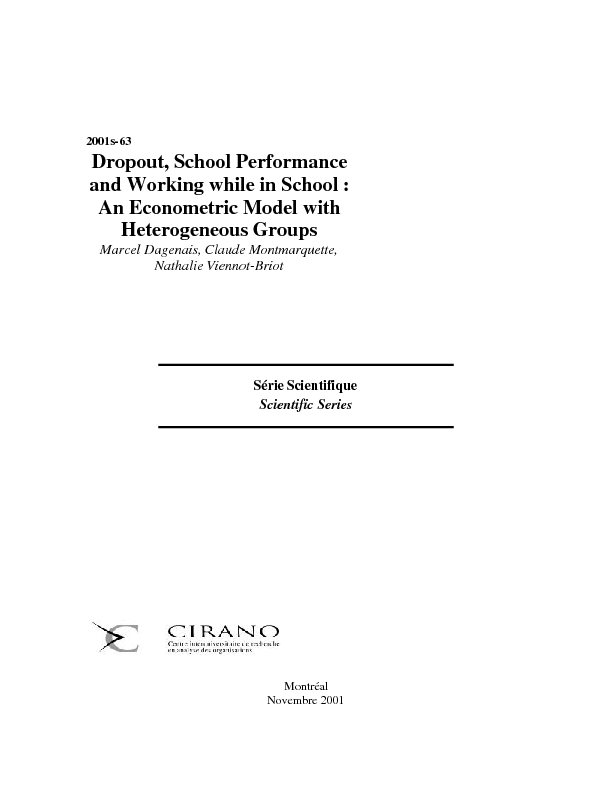Dropout, School Performance and Working while in School : An Econometric Model with Heterogeneous Groups
We develop an econometric model where the determinants of work while in school, dropout and academic grades are set in the context of two types of high school students: those who favor schooling and those who are more inclined to access rapidly the labor market. The individuals contributions to the likelihood function of this heterogeneous groups model are made or 48 terms of a standard quadrivariate normal function. Exploiting a unique Canadian microdata set of high school leavers, we show that being a female student, attending a private school and being part of a family of better educated parents matter to identify a high school student's preference for schooling over the labor market. We also found that working less than 15 hours per week while in school is not necessarily detrimental to success in school; that legal age to access the labor market is important in the decision to dropout; that high minimum wages are incremental for many students to dropout; and that low unemployment rates encourage dropout. Several policies aim to reduce dropout are derived from our results.
[ - ]




